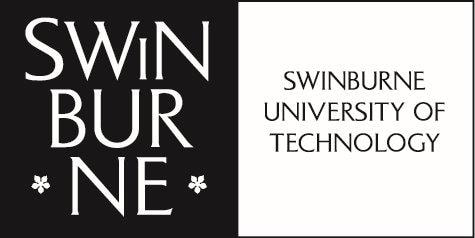Early career researcher workshop
Dr Christine Chung
Chrstine Chung is a research scientist in the Climate Research Section of the Australian Bureau of Meteorology. Her primary research interest is using climate models to simulate large-scale climate processes in the Pacific Ocean such as the El Nino Southern Oscillation: how they are affected by variability occurring in other parts of the world, and how they impact Australian climate. She is also the Lead Chief Investigator for a project under the National Environmental Science Program which aims to further our understanding of Australian climate variability and change. Before joining the Bureau in 2011, she completed a PhD at the School of Physics at Melbourne University ("Radio, X-ray, and Gravitational Wave Emission from Neutron Stars"). During this time she was a member of the LIGO consortium and contributed to a search for gravitational waves from SN1897A. A highlight of her time with LIGO was spending 4 months as a guest researcher at the Max Planck Institute for Gravitational Physics in Potsdam, Germany. She has been fortunate to be able to apply the computational and analytical skills she learned during her PhD to the field of climate science. Dr Mark Bennett Mark Bennett is an early career postdoctoral researcher in bioinformatics at The Walter and Eliza Hall Institute of Medical Research. He initially completed a PhD in astrophysics at the University of Melbourne before transitioning to bioinformatics, firstly at the University of Cincinnati before returning home to Melbourne. His main research focus is identifying and understanding genetic causes of epilepsy and other neurological disorders. Mark has a particular interest in repeat expansions and has developed several methods, which have recently been used to discover new repeat expansions that cause a rare form of epilepsy. Dr Christine Magoulas Christina Magoulas is a Senior Scientific Software Engineer in the Scientific Computing group at the Australian Synchrotron. In this role she designs and develops data-driven software that enables scientists to perform their experiments at the Synchrotron beamlines. Her non-standard pathway to this role was through a research career in Astrophysics where she wrote modelling and analysis tools to study the properties of early-type galaxies with large galaxy surveys. After receiving a PhD from the University of Melbourne (in collaboration with the Australian Astronomical Observatory), she completed a three-year postdoctoral position at the University of Cape Town where she wrangled mid-infrared photometry data and spent summers watching cricket at Newlands. She lives in Brunswick together with her partner and red Siberian cat where she enjoys gluten free baking and watching the Lord of the Rings. Dr Edoardo Tescari Edoardo Tescari received his Master’s degree in astronomy in 2006 (University of Padua) and completed my PhD in physics – cosmology – in 2010 (University of Trieste). After two shorts postdocs at the University of Trieste and the Service d’Astrophysique, CEA-Saclay (Paris), he commenced working as a postdoctoral fellow at the Australian Research Council Centre of Excellence for All-Sky Astrophysics (CAASTRO), University of Melbourne, from 2011 to 2017. In September 2017, he assumed the position of Academic Programs & Student Experience Officer within the Academic Engagement admin team in the Faculty of Science (UoM). In May 2019, he had the chance to go back to academia after being offered a Research Data Specialist position with the Melbourne Data Analytics Platform (MDAP) team at Melbourne Uni. |
- Home
- About
-
Our People
- Chief Investigators
- Partner Investigators
- Associate Investigators
- Postdocs and Students >
- Professional & Outreach staff
- Governance Advisory Committee
- Scientific Advisory Committee
- Executive Committee
- Equity & Diversity Committee
- Early Career Researcher Committee
- Professional Development Committee
- Research Translation Committee
- OzGrav Alumni
- Research Themes
- Education and Outreach
- Events
- News/Media
- Contact Us
- Home
- About
-
Our People
- Chief Investigators
- Partner Investigators
- Associate Investigators
- Postdocs and Students >
- Professional & Outreach staff
- Governance Advisory Committee
- Scientific Advisory Committee
- Executive Committee
- Equity & Diversity Committee
- Early Career Researcher Committee
- Professional Development Committee
- Research Translation Committee
- OzGrav Alumni
- Research Themes
- Education and Outreach
- Events
- News/Media
- Contact Us









